One of the good things that came out of the pandemic lockdowns was the bonus of another year together for my family. All three of my children are adults, and two were studying or working out of state. The switch to remote work and education meant that they came home for a year. And while this was challenging at times, it gave us more of the meaningful time together that we thought was passed forever.
The lockdown was also an opportunity to spend time around the table playing games together. Eventually, the pandemic eased, and, sadly, our children returned to their distant lives. During the lockdown, because we were doing a lot of gaming, my collection grew. So post-pandemic, I was left with a much larger game collection than before. And because my spouse doesn’t care for board games the way I do, and now that the children were gone, our games weren’t getting played.
What to do?
I considered garage sales, online marketing, and the rest, but when it came time to actually sell the games, I realized that I didn’t want to. Like many, the art, the tactile nature of board games, and the appeal of solving puzzles and problems satisfy my active, cognitive needs.
Heading to the internet, I discovered that many of my family’s favorite games had fan or designer-created solo rules. And while it may sound a bit odd to some, this was a huge moment for me. I was completing a doctoral dissertation, which is a hell that has to be experienced to be understood. In one sense, it was like having a second full-time job, except that I was paying for it instead of being paid. It also meant hours on the computer, usually researching, analyzing, and typing into the early hours of the morning while I invented new curses for a computer that did not want to play nicely with the templates required by the university. I desperately needed relief from the screen time, as the first gift of my PhD was multifocal glasses.
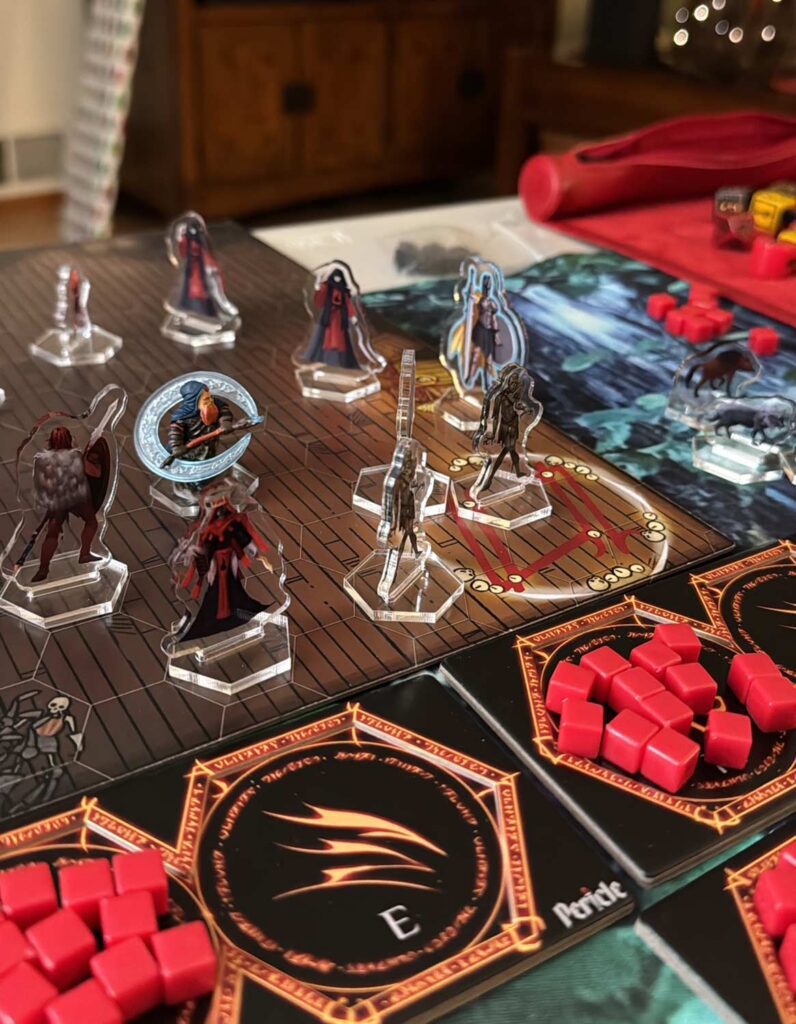
So I turned to board games. As my Playstation and Switch gathered dust, I was dusting off games like Wingspan which boasts a legendary automa, and smaller games like Fluxx, which can be adapted for solo play. I discovered Print and Play. There were so many solitaire games! And they were inexpensive or “free” as long as I made regular trips to stores around town for the not-so-inexpensive-or-free crafting supplies. I began shopping for board games with solo play capabilities. I also discovered crowdfunding which might have led to some “negotiations” with my spouse regarding finances. But that’s a topic for another day.
In short, my collection of games grew quickly. Then something really amazing happened. I discovered the solo board gaming community. Facebook affinity groups such as Solo Board Gamers, Solitaire Wargames, and Reddit Groups like r/soloboardgaming are much more than a place to find gaming ideas, they provide support, alternative rule sets, and ideas to enrich play. And, for the most part, these pages are positive and friendly corners of the social media realm that is typically swarming with trollish nastiness. The moderators in these groups are quick to silence political discourse or angry diatribes against designers or other players.
I once committed the unpardonable sin of asking a question that had been covered more than a year before. There were a couple vitriolic attacks on my intelligence and laziness, then suddenly, the commenters were gone, never to be heard from again. In their place were links, and encouraging statements, helpful photographs, and shared joy in our hobby. It was a refreshing experience, and one which has kept me engaged in social media.
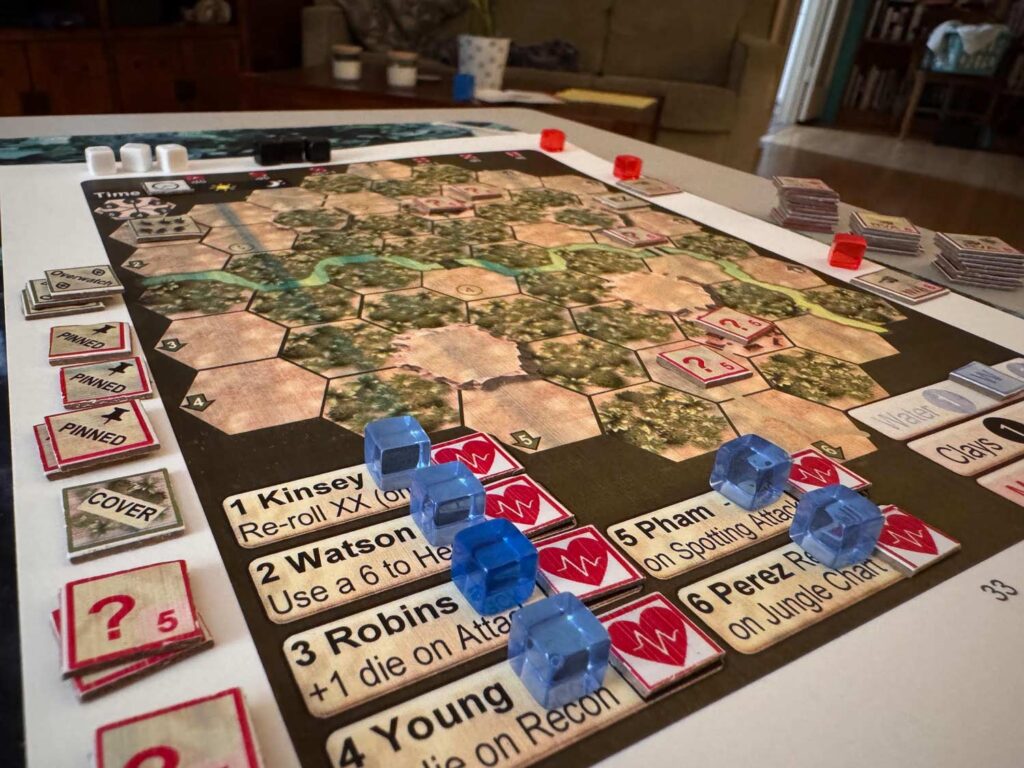
Most of us got hooked on games because we played with friends. I was fortunate enough to play the very first edition of Dungeons and Dragons with childhood friends. We had an attic room all to ourselves for hours and hours on rainy weekend days and evenings to explore Faerun and navigate the Bloodstone Pass. There may have been the occasional real-life arrow shot in that room, and I am certain there were a couple actual fireballs cast thanks to my friend’s mom and her stock of Aqua Net hairspray and disposable lighters. It’s a GenX thing, don’t try it at home, kids.
I played hundreds of hours of Axis and Allies with my buddies in college and my shipmates in the Navy. But I also played a lot of heavier games on my own; Star Fleet Battles and Squad Leader were regulars on the desk in my bedroom. And these games had complex but satisfying solo rules. And while I will always love game night with family and friends, I have rediscovered the many benefits to mental health that come with solitaire games. But it isn’t good for humans to be isolated all the time. This is where the virtual and long-distance support of the solo gaming community is so important.
The first thing I noticed with online affinity groups is that the board gaming community is super friendly. It’s like the Canada of board games. Even as a newbie, I found that I was welcome, and my questions, no matter how simple or obvious in hindsight, were always met with friendly responses and suggestions. Sure, there is the occasional jerk to be encountered. “Why don’t you just look that up, quit wasting our time!” But I played the first edition, remember. I know how to handle trolls. And like the Rohirrim, my fellow solo gamers can be counted on to trample the negativity right away.
Ironically, it can often feel as if the solitaire gaming community is less divided and more supportive than others who enjoy this hobby. Most of us tend to be somewhat introverted, at least some of the time. Many of us live alone or are “empty nesters.” Some are disabled and cannot get out to play with friends.Perhaps this is why we find community, sharing our last minute saves, or hilarious failures in Final Girl, or asking yet again for help comprehending the rulebook for Senjutsu: The Battle for Japan.. We may be alone, but we are certainly not lonely – at least in this aspect of our lives.
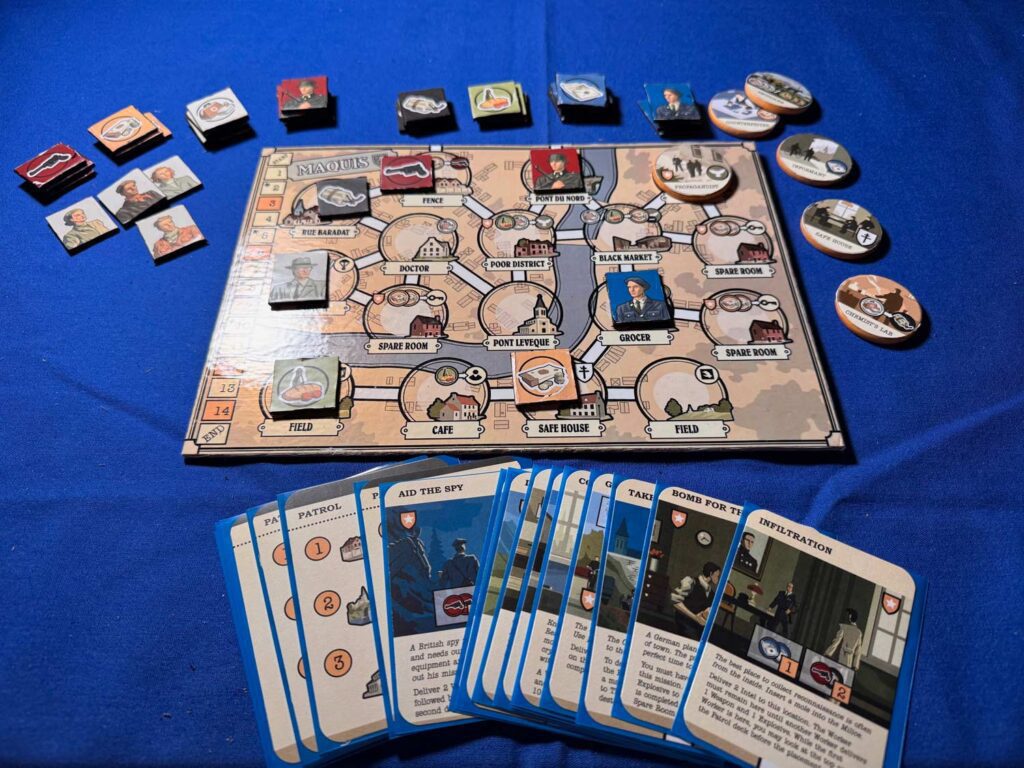
Solo players tend to be more kind to one another than we find in other communities such as the video gaming world.. I have seen many examples where the differences of opinion related to the canon and lore of beloved fandoms become the source of conflict and angry discourse in the larger, multiplayer community. Just consider the way science fiction fans talk about the various media entertainment available for Star Wars. But in the solo community, these are most often managed with good humor, and people from all walks of life can not only feel as if they are equal participants, but they can feel safe in this community. And this is how it should be. After all, we literally “play” games. They are supposed to be fun.
I have now discovered that when I am shopping for a new title, I tend to shun those without solo rule sets. But many of us are discovering that there are ways to adapt most multiplayer mechanics to solo play. It took only a few days for an outstanding automa to be developed for Lord of the Rings: Duel for Middle Earth upon its release last year. And this interaction between players and developers is opening up some wonderful opportunities for everyone.
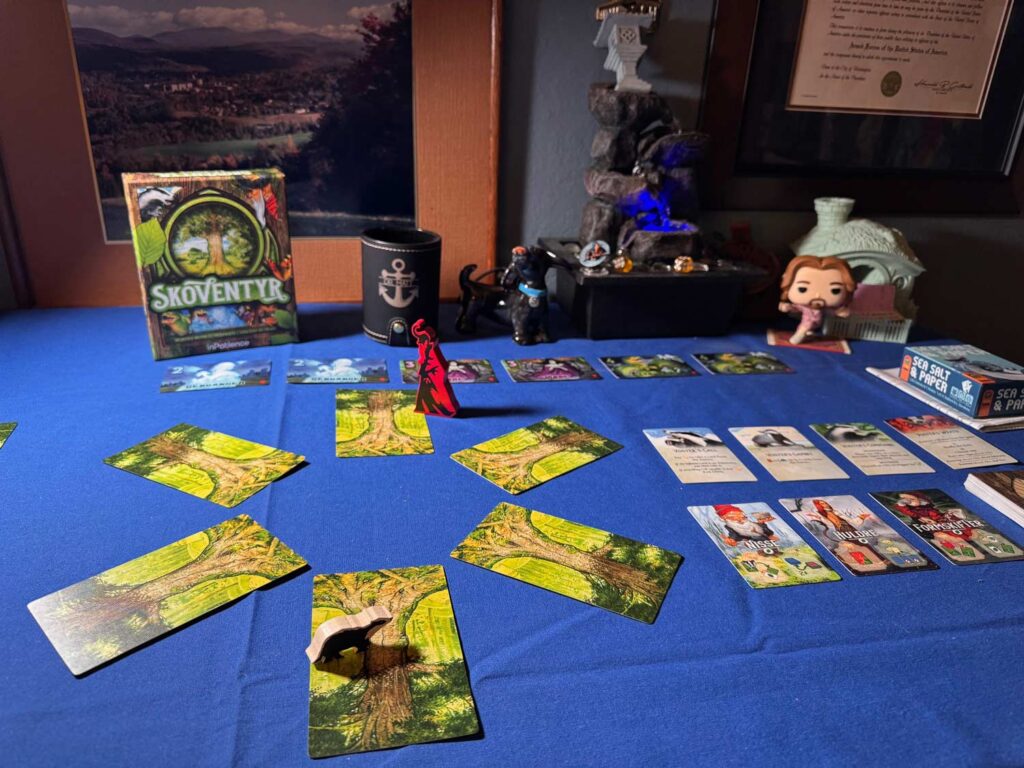
Who knew that when you write something about a game on social media or on a board game forum, that the developers and designers often read it and interact with you? Two of my favorite solo wargame designers have created content based upon ideas that I shared with them. One is developing an entirely new campaign event based around the real-life experiences of a friend of mine who flew naval combat missions over Vietnam. It is expected to be included in a re-release scheduled for Q3 2025. It is an unexpected magic of the solitaire community that we often share in the process of creation in these small ways. Many have gone on to successfully create games themselves.
It doesn’t have to stop at virtual connection either. Solo board gaming is becoming a popular topic at conventions where developers are hearing the message that players want solo compatibility when they buy a new game. Solo play allows us to learn the rules quickly. So even if we purchase a game to play with friends and family, it is easier for us to master the rules and teach them to others. It also reminds us of a critical childhood developmental process known as “parallel play,” which strengthens self-regulation, autonomy, and confidence while facilitating calmness and joy.
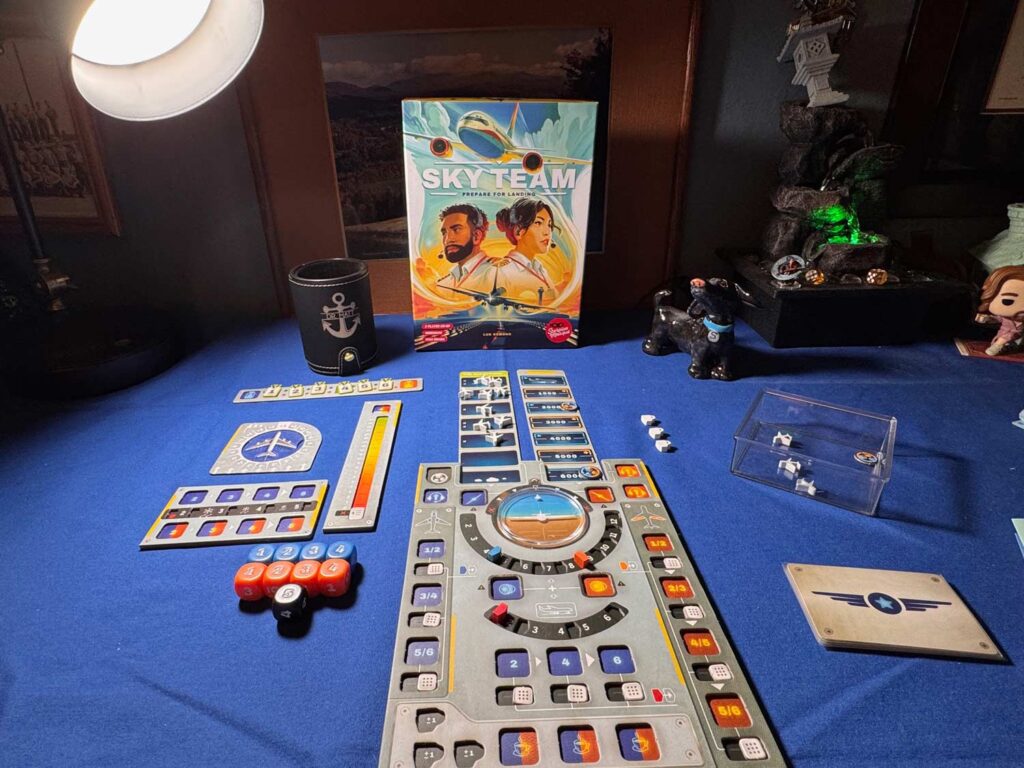
The advent of this virtual and real-life community has taken what was a solitary hobby for old dudes who loved historic war games (don’t judge me) and given it a universal appeal. Gaming has become a shared pursuit where we celebrate one anothers’ victories and empathize with each others’ pain. Online conversations often drift into serious, personal issues that are not related to games at all. For instance, when a friend and fellow veteran committed suicide this year, I mentioned how I could no longer bring myself to play certain wargames that were based on our real world experiences with war. Fellow players are still reaching out to check on me. And I often reach out to those who are experiencing the loss and trauma of life. We really are a supportive family in this shared escapism.
One need not be the loneliest number.
Play on, friends!
– Dr. Matt


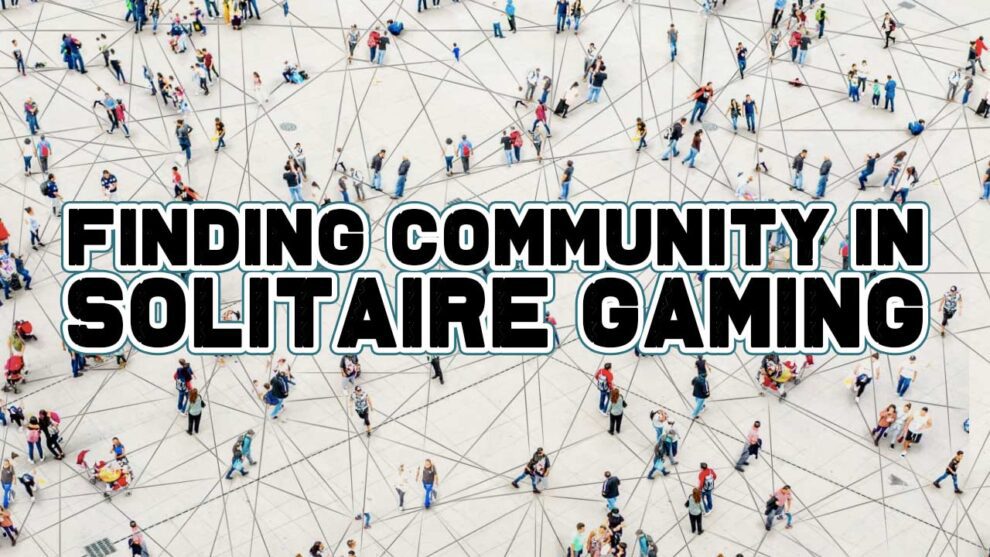




Add Comment